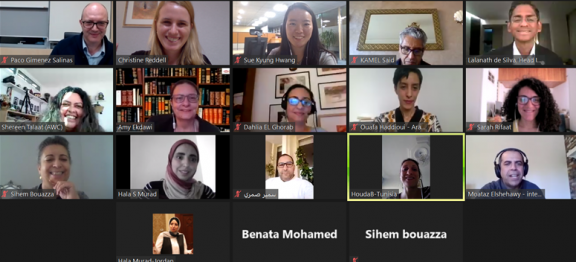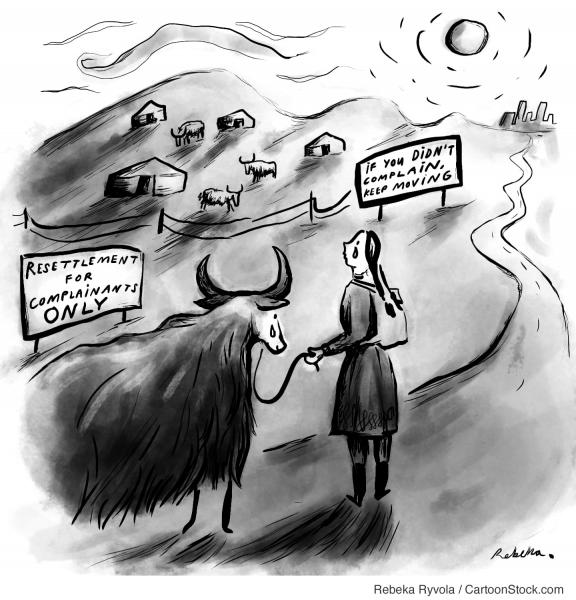MENA region participants find out how Asha submitted a complaint to the IRM
Asha is a fictional character used in a short video created by the Independent Redress Mechanism (IRM) to explain the IRM’s complaints handling process. Asha’s livelihood depends on subsistence farming, and once a week she walks 4km to the nearest town to sell vegetables. Asha is negatively impacted when a Green Climate Fund (GCF) solar power farm is located between her house and the town, making her access to market more difficult than before. She would have to walk to the market the night before – increasing her expenses and risk. Luckily for Asha, she notices a board at the construction site advertising the IRM of the GCF – a place where she can submit a complaint to.
The IRM used this video in a recent outreach workshop for civil society participants from four Middle East and North Africa (MENA) region countries, namely Morocco, Egypt, Tunisia and Jordan, held on Saturday the 3rd of April 2021. These countries have a significant number of approved GCF projects and programmes, many of which are already under implementation. One of the participants from the workshop asked whether Asha’s discovery of a notice board advertising the IRM, or even a notice board advertising that this was a GCF project, was something which could be expected in the “real world”, or whether it was purely fictional? This is a good question, and something which the IRM has been reflecting on in recent times! There is an obligation on the accredited entity (who partners with the GCF to implement projects) to inform project affected people of the existence of the IRM and the accredited entity’s grievance mechanism. However, the extent to which this happens on the ground is very much in the hands of the accredited entity and implementing entity. Increased transparency around the IRM and the financial involvement of the GCF in projects and programmes, particularly for project beneficiaries and project affected people, is something that the IRM is pushing for.
There were a number of other interesting questions raised in our recent workshop, which was co-hosted with Arab Watch, and included simultaneous translation from English to Arabic to increase accessibility and participation in the discussions. The workshop covered a range of topics including an introduction to who the GCF is, and how the GCF financing structure works; how to find information online about GCF projects and programmes; who the IRM is, and how the IRM works together with the grievance redress mechanisms of accredited entities; and how to file a complaint with the IRM if someone is, or may in the future, be negatively affected by a GCF project or programme.

Outreach workshops like this one are an important aspect of the IRM’s work. There’s no point in having a grievance mechanism if people don’t know about it! While COVID-19 has presented a challenge for conducting in-person outreach events, and connecting with people on the ground, the IRM has continued its outreach efforts and has hosted a number of online events since the start of the pandemic, including for the Asia Pacific region, Brazil, Mongolia, Central Asia, and now for the MENA region. The IRM has been making use of interactive tools to increase participation, given the online format. The IRM makes use of Zoom breakout rooms with interactive exercises, poll questions, videos, and has even experimented with the use of cartoons (drawn in real-time by cartoon artists who participate in the workshop and draw based on the insights shared).

While the IRM plans to conduct other workshops this year, stakeholders don’t need to wait for an outreach workshop in their region to learn more about us. If you’ve found your way to this blog and want to know more, send us an email or message and we’d be happy to set up a call – irm@gcfund.org.